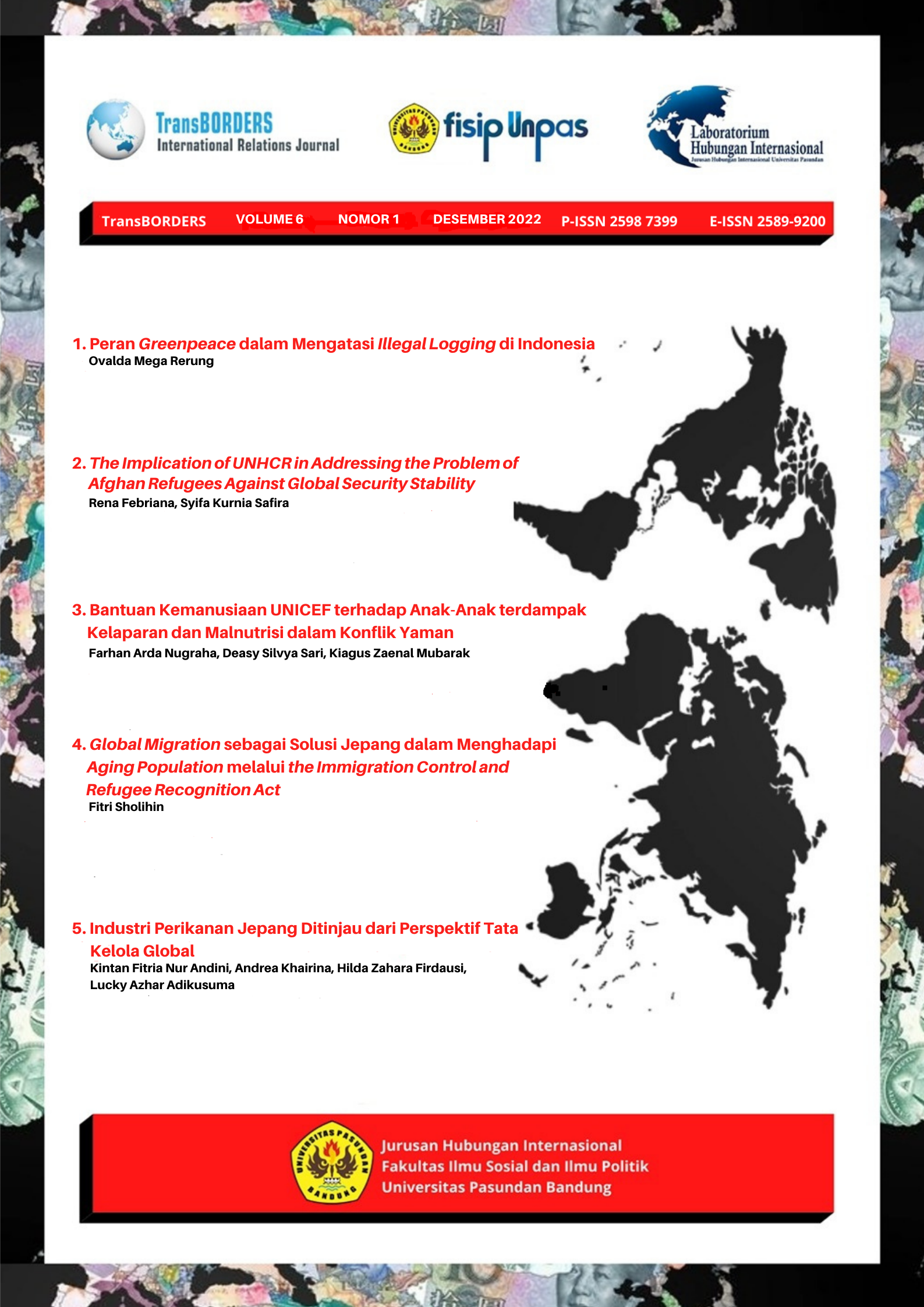The Implication of UNHCR in Addressing the Problem of Afghan Refugees Against Global Security Stability
Keywords:
Refugees; UNHCR; Security Stability; Afghanistan Refugees; International ConflictAbstract
This article aims to examine the implications of the United Nations High Commissioner for Refugees (UNHCR) in dealing with the problem of Afghan refugees scattered in various countries caused by the internal conflict between the Afghan government and the Taliban. The role of UNHCR under the 1951 Refugee Convention and the 1967 Protocol contains the objectives of protecting the rights of refugees throughout the world and providing various facilities both in the health sector and to regulate the placement of refugees in third countries. The international community is feeling the impact of the COVID-19 pandemic. In its implementation, the distribution of Afghan refugees to the destination countries often raises a new problem for the country concerned with security stability. There is a new problem that the Afghan government is also facing due to several countries being less willing to accept the large number of refugees arriving. In understanding the condition of the problem, a qualitative analysis approach is used by observing the strategies taken by UNHCR. This article finds that UNHCR, which acts as a facilitator, mediator, and initiator, has a significant role in preventing global threats due to the high flow of refugees. In this way, it can realize the rights of refugees and the international security stability to be achieved.
Downloads
Downloads
Published
Issue
Section
License

TransBorders: International Relations Journal is licensed under a Creative Commons Attribution-ShareAlike 4.0 International License
In order to be accepted and published by TransBorders: International Relations Journal, authors submitting the article manuscript should complete all the review stages. By submitting the manuscript, the author(s) agreed to the following terms:
- The copyright of received articles shall be assigned to TransBorders: International Relations Journal as the publisher of the journal. The intended copyright includes the right to publish articles in various forms (including reprints). TransBorders: International Relations Journal retains the publishing rights to the articles it publishes.
- Authors are permitted to disseminate a published article by sharing the link/DOI of the article at TransBorders: International Relations Journal. Authors are allowed to use their articles for any legal purposes deemed necessary without written permission from TransBorders: International Relations Journal, with an acknowledgement of initial publication to this journal.
- Users/public use of this website will be licensed to CC BY-SA (Attribution & ShareAlike).
















